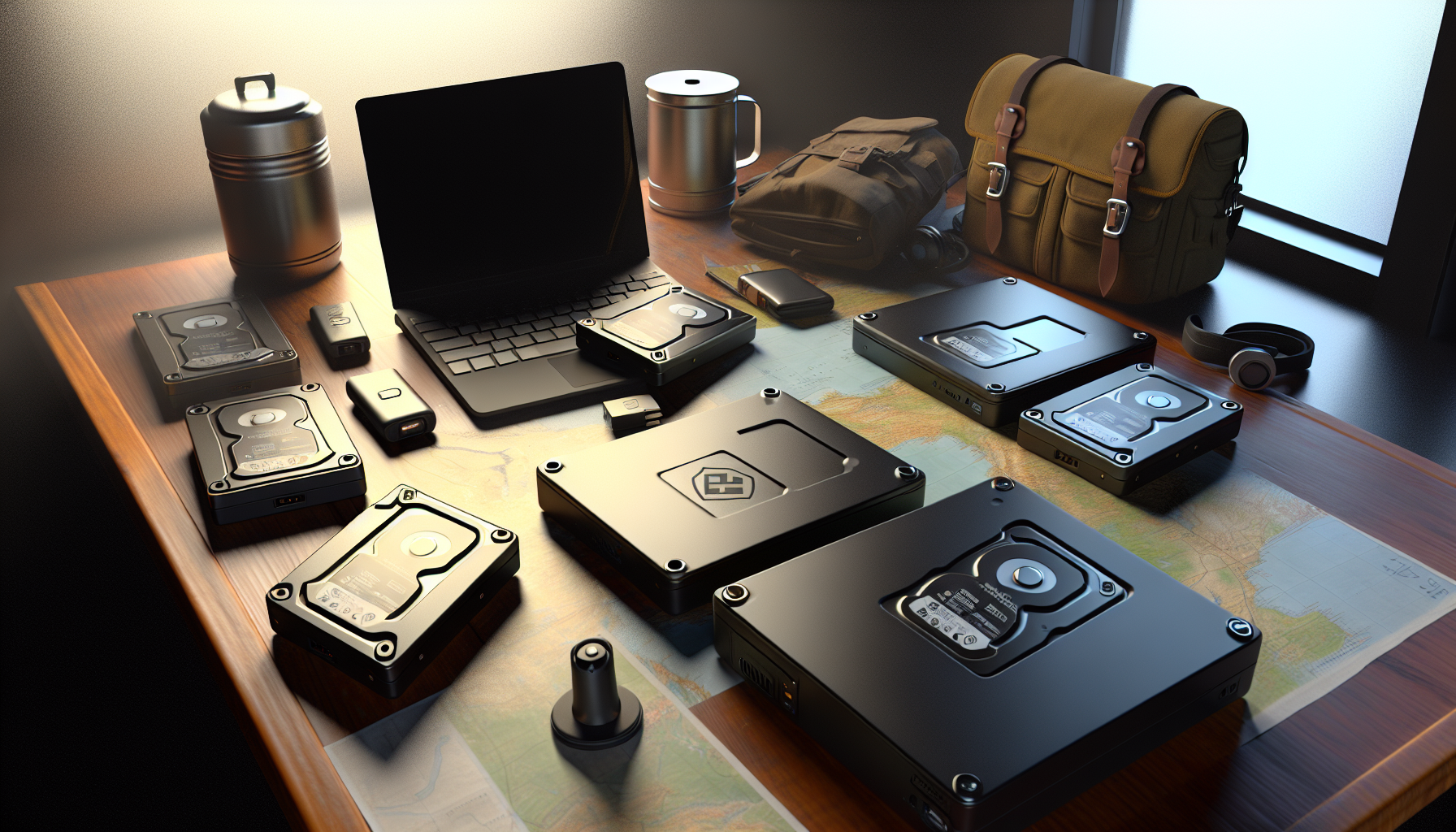The Most Reliable Hard Drives and SSDs for Digital Nomads
Life on the road can be thrilling for digital nomads, but carrying your office in your backpack comes with its own set of challenges. One of the most critical assets for a remote worker is reliable storage. Whether you’re backing up important documents, storing precious travel photos, or running software, having a dependable hard drive or SSD can make a huge difference. Let’s dive into the world of robust, portable storage solutions that keep digital nomads equipped and worry-free.
Key Takeaways:
- Durability is paramount—look for devices that can withstand drops and extreme conditions.
- Speed matters—opt for SSDs if you need faster data transfer speeds.
- Portability is key—choose compact and lightweight storage options.
- Storage capacity—match your choice with your specific needs.
- Compatibility—ensure your storage device works with your host devices (laptops, tablets, etc.).
Durability Makes All the Difference
For digital nomads, durability isn’t just beneficial—it’s essential. When your journey takes you from bustling cities to remote beaches, your hard drive needs to survive every bump along the way.
LaCie Rugged Mini stands out in this category. Known for its durable exterior, this hard drive offers drop, crush, and rain resistance. Popular travel blogger Anna Smith once said, “I’ve dropped my LaCie from a two-story building by accident, and it still works flawlessly!”
Speed: Time is Money
When it comes to speed, SSDs take the crown. They offer stunningly quick data transfer rates, which is invaluable when you’re editing videos or managing large files.
Consider the Samsung T7 Portable SSD, which combines lightning-fast speeds with robust security. With read speeds up to 1,050 MB/s and write speeds up to 1,000 MB/s, it’s perfect for those who need speed and reliability on the go. As tech expert John Mayer noted, “For anyone needing rapid access to large files, the Samsung T7 is a game-changer.”
Portability: Travel Light
Being a digital nomad means you can’t afford to carry bulky gadgets. The best hard drives and SSDs are lightweight and compact without compromising on performance.
The SanDisk Extreme Portable SSD fits this bill perfectly. Small enough to slip into your pocket, yet powerful enough to handle vast amounts of data.
Storage Capacity: Match Your Needs
The best device isn’t necessarily the one with the largest storage capacity; it’s the one that best fits your individual needs.
For example, if you’re a photographer, you might need a larger capacity like the WD My Passport Ultra, which offers storage options ranging from 1TB to 5TB. “I can easily store thousands of high-res photos on my WD Ultra without breaking a sweat,” says travel photographer Liam Roberts.
Compatibility: Seamless Integration
Ensuring that your storage device is compatible with your primary devices is vital. Some hard drives and SSDs come pre-formatted for either Windows or Mac, but many can be easily adjusted to work with both.
The Seagate Backup Plus Slim is a versatile option compatible with Windows and Mac, thanks to its inclusion of USB-A and USB-C cables. Plus, it’s straightforward to reformat if needed.
Quick Comparison Table:
| Product | Durability | Speed | Storage Capacity |
|---|---|---|---|
| LaCie Rugged Mini | High | Moderate | 1TB – 5TB |
| Samsung T7 Portable SSD | Moderate | Very High | 500GB – 2TB |
| SanDisk Extreme Portable SSD | Moderate | High | 500GB – 2TB |
| WD My Passport Ultra | Moderate | Moderate | 1TB – 5TB |
| Seagate Backup Plus Slim | Moderate | Moderate | 1TB – 2TB |
Living or Experiential Tips
- Cloud Backups: Complement physical storage with cloud backups. Services like Google Drive or Dropbox ensure your data is safe even if something happens to your hard drive.
- Multiple Copies: Always keep at least two copies of your most important files in two different locations.
- Regular Maintenance: Periodically check the health of your storage devices to avoid unforeseen failures.
- Keep it Organized: Invest in good cable management to keep everything tidy and avoid damage.
- Use Protective Cases: Even if your device is rugged, a little extra protection can never hurt.
When planning your digital toolkit, think of your hard drive or SSD not just as an accessory, but as an essential travel buddy. From durability to speed and capacity, make sure it aligns perfectly with your nomadic lifestyle.
For more insights, explore these resources:
FAQ
Q1: What’s better for a digital nomad, an HDD or an SSD?
A1: SSDs are generally better due to their higher speed, lighter weight, and greater durability. However, HDDs offer larger capacities at lower costs.
Q2: Do I need a waterproof hard drive?
A2: If you often work in unpredictable weather or near water, opting for a waterproof and rugged model is a smart move.
Q3: How often should I back up my data?
A3: Regular backups are crucial. Ideally, back up your data weekly, or more frequently if you’re working on critical projects.
